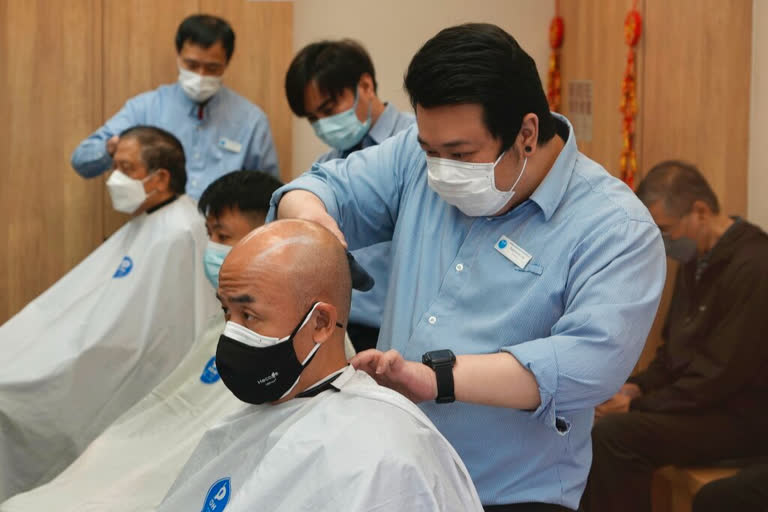Beijing:China is tackling a COVID-19 spike with selective lockdowns and other measures that appear to slightly ease its draconian "zero tolerance" strategy. In Hong Kong, which recorded more than 58,000 new cases on Thursday, barber shops and hair salons were reopening. Many are seeing that as an example of mixed messages from the government of the semi-autonomous Chinese territory that has been ordered to follow the "zero tolerance" approach used on the mainland.
The 402 cases of local transmission recorded on the mainland Thursday were quadruple the number of cases a week ago. Of those, 165 were in the northeastern province of Jilin, mainly in the cities of Changchun and Jilin, where city authorities locked down 160 residential communities where multiple cases have been detected.
Three rounds of mass testing in Jilin city have also been completed, inter-city transport links suspended and all residents advised to stay home until numbers drop. Non-essential businesses and snow recreation areas were closed. Drivers and passengers of private cars, buses and taxies entering or exiting Changchun must present negative tests for the coronavirus taken within the past 48 hours.
Also read:COVID-19 cases on the rise in China as Beijing, several provinces continue to report spike
Authorities attributed the Jilin provincial outbreak to the highly contagious omicron variant, with more than 1,200 cases recorded nationwide since Friday, some of the highest numbers since the pandemic began spreading from the central city of Wuhan in 2020. Still, control measures were less strict than in the past, in a possible sign that China is beginning to relax its "zero tolerance"" approach to the pandemic. As recently as January, China was locking down entire cities, affecting millions of people.
In his annual report on the work of government delivered Saturday, Premier Li Keqiang said China needs to "constantly refine epidemic containment" but gave no direct indication Beijing was abandoning "zero tolerance." Hong Kong leader Carrie Lam said Wednesday that reducing deaths is the city's priority, while a mass-testing plan was put on hold. It had been planned for this month, but Lam said there's now no set timing. To reduce deaths from the virus, Hong Kong is dedicating one hospital to COVID-19 treatment, converting general wards and building an emergency hospital that will be staffed by medical workers from the mainland.
AP
